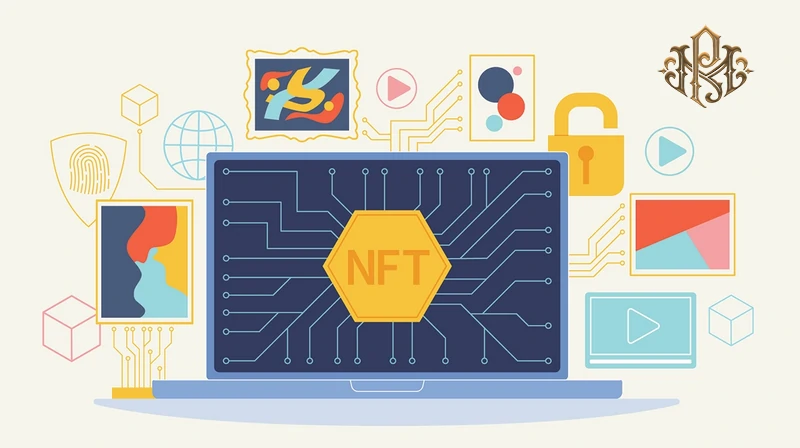
Close



The concept of NFT, or non-fungible tokens, has become increasingly popular in recent years as a new way to represent ownership and authenticity of digital assets. NFTs are unique digital tokens that are verified on a blockchain network, which makes them unalterable and traceable.
Unlike traditional cryptocurrencies like Bitcoin, which are fungible, meaning one unit is interchangeable with another, NFTs are non-fungible, meaning each one is unique. This uniqueness makes them particularly valuable for representing ownership of rare or one-of-a-kind digital assets such as artwork, music, video game items, and collectibles.
When an artist creates a piece of digital art and sells it as an NFT, they are essentially creating a secure and transparent record of ownership that can be tracked and verified by anyone on the blockchain network. This provides a level of authenticity and value that was previously difficult to achieve in the digital realm.
NFTs have also proven to be a lucrative investment opportunity for collectors and investors. In some cases, NFTs have sold for millions of dollars, while others have increased in value significantly over time. However, there are concerns about the environmental impact of NFTs due to their reliance on energy-intensive blockchain technology.
Despite these concerns, the concept of NFTs has opened up new possibilities for creators and collectors alike. With the ability to represent ownership and authenticity of digital assets securely and transparently, NFTs have the potential to revolutionize the way we think about ownership of digital goods.
The rise of NFTs has been fueled by a growing demand for digital ownership and authenticity. In the past, it was difficult to prove ownership of digital assets like artwork, music, and video game items. This made it challenging for creators to monetize their work, as well as collectors to invest in these assets.
With NFTs, however, everything changes. NFTs are unique digital tokens that represent a specific asset and can be verified on a blockchain network. This makes them unalterable and traceable, providing a level of authenticity and value that was previously impossible for digital assets.

NFTs
NFTs use blockchain technology to create a decentralized ledger of ownership. This means that anyone can see who owns the NFT, as well as its entire transaction history. This transparency provides a high degree of trust between buyers and sellers, enabling creators to monetize their works directly and efficiently without needing intermediaries.
Another benefit of NFTs is their ability to represent rare and one-of-a-kind assets. For example, some artists have used NFTs to sell unique pieces of digital art, such as a single edition of a painting or sculpture. This gives collectors the opportunity to own exclusive and valuable digital creations, which were previously difficult to obtain.
NFTs are also becoming increasingly popular in the gaming industry, where they can be used to represent in-game items, virtual real estate, and even entire game assets. This allows players to truly own and trade their digital assets, making them more invested in the games they play.
One of the more interesting aspects of NFTs is the role they can play in creating new revenue streams for creators. For example, musicians can release limited-edition NFTs that grant fans exclusive access to performances, merchandise, or other exclusive content. This creates a new way for artists to connect with their fans and monetize their work.
Despite the many benefits of NFTs, there are concerns about their environmental impact. Because NFTs rely on energy-intensive blockchain technology, some argue that they contribute to climate change. However, solutions such as proof-of-stake consensus algorithms could help mitigate this problem.
In conclusion, the concept of NFTs has revolutionized digital ownership and authenticity. They provide a new way for creators to monetize their work while granting collectors access to unique and valuable digital assets. As the technology continues to evolve, it will be fascinating to see how NFTs are used in other industries and what new possibilities they will unlock.